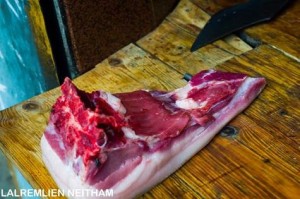Indian food safety systems are challenged by the rapidly growing population, hygiene related problems, incidences of residues of antibiotics and heavy metals, foodborne pathogens, incidence of infectious diseases in food producing animals and anti- microbial resistance.
 These observations were made by experts addressing the recently-held National Symposium on Food Safety of Animal Origin, arranged during the XIII Annual Conference of Indian Association of Veterinary and Public Health.
These observations were made by experts addressing the recently-held National Symposium on Food Safety of Animal Origin, arranged during the XIII Annual Conference of Indian Association of Veterinary and Public Health.
Expressing his views at the symposium, Prof. Suresh S Honnappagol,animal husbandry commissioner, Government of India, stated, “The traditional production, processing and waste handling systems coupled with unhygienic practices in particular have tainted and tarnished the image of the Indian meat industry.”
Further, a panel of experts pointed out that population and income growth were driving enormous increases in demand for foods of animal origin. Livestock production systems are facing increasing demands for livestock feeds relative to availabilities. Accurate assessments of current and future supplies and demands for livestock feed are needed for national food and feed security policy and planning. The development of National Feed Assessment Systems (NFASs) is suggested to support sustainable livestock sector growth.
Dr C Renukaprasad, vice-chancellor, KVAFSU, Bidar,stated,“There is need to have extensive knowledge about the main health hazards associated with consumption of meat, poultry and eggs and their epidemiology in animals and humans. In addition, the risk analysis and HACCP (Hazard Analysis and Critical Control Points). There must be an awareness of international regulation concerning the safety of meat, poultry and eggs and related trade issues.There is also need to put in risk-based inspection procedures.”
